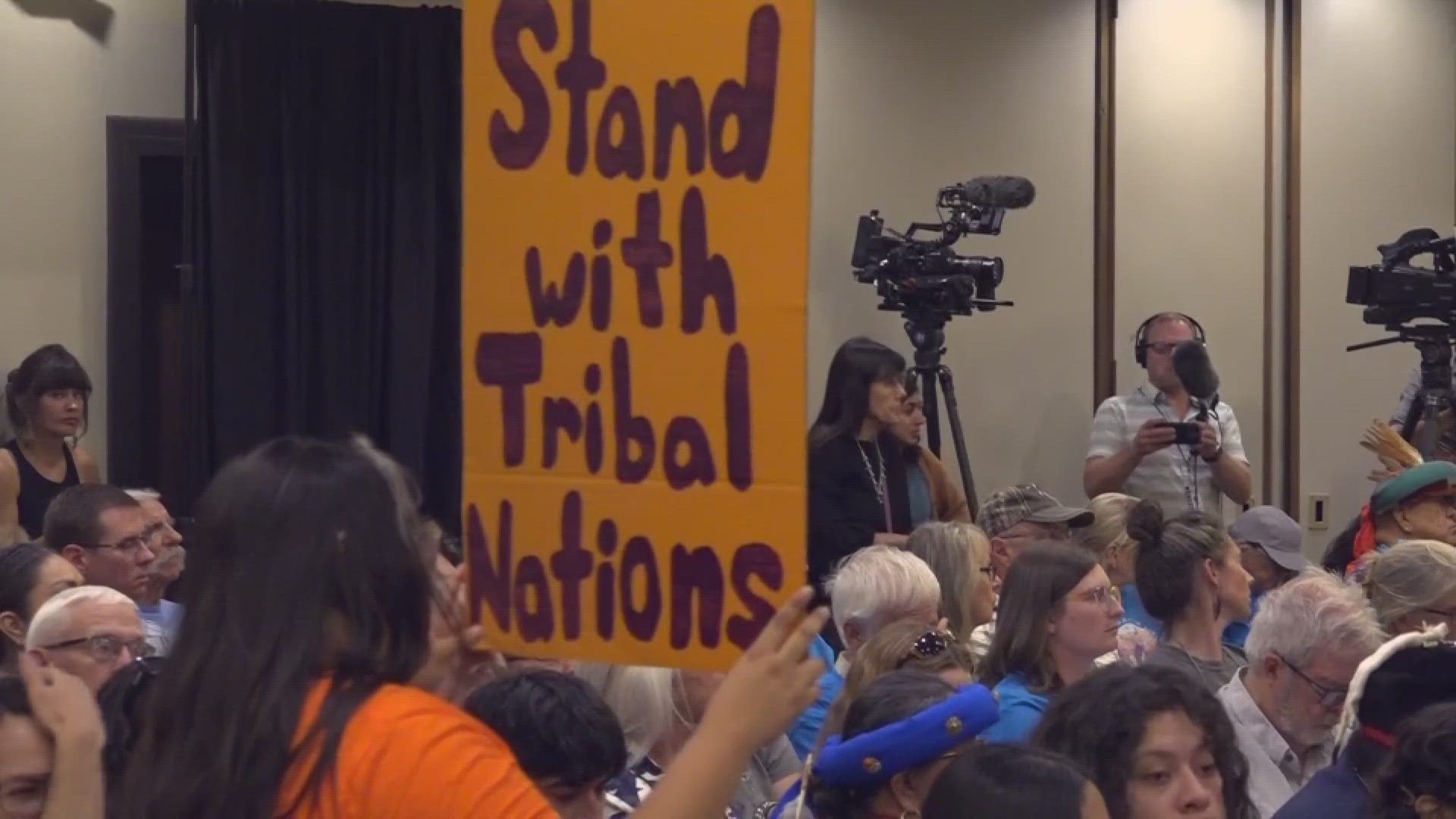FLAGSTAFF, Ariz. — A vocal majority of about 200 people attending a public meeting Tuesday in Flagstaff expressed support for protecting large swaths of land near the Grand Canyon from mining and outside developers.
The meeting, hosted by the U.S. Department of Interior, was held in response to tribal leaders urging Pres. Biden to use the Antiquities Act to create the Baaj Nwaavjo I’tah Kukveni Grand Canyon National Monument.
It would set protection standards for 1.1 million acres of land north and south of Grand Canyon National Park. It would also designate 12 indigenous tribes associated with the canyon to help oversee the protected land.
“Everyone in this room has a shared love of our public lands. Everyone in this room wants to take care of them,” said Tracy Stone-Manning, the director of the Bureau of Land Management during the meeting. “The rub of that is the ‘how.’ There are always, always, always lots of opinions as to how.”
Widespread support for national monument
“As guardians of the Grand Canyon, we have a duty to protect it,” said Edmond Tilousi, the vice chairman of the Havasupai Tribe. Several tribal leaders discussed why the Grand Canyon and the Colorado River have spiritual, historic, and cultural meaning for their people.
Supporters of the move include Arizona Sens. Kyrsten Sinema and Mark Kelly, Rep. Raul Grijalva, Rep. Ruben Gallego and city councils representing Flagstaff and Payson.
Joe Trudeau, a Prescott ecologist, drove to Flagstaff Monday morning to provide his 2-minute speech.
“I hope you will make the dream of our native neighbors a reality,” Trudeau said, adding that he also hopes federal officials will extend the protected area.
“My work has taken me to 20 national forests. The north Kaibab retains most of the best remaining old-growthmeanings ponderosa pine forests in the southwest. They must be protected in some manner as well,” Trudeau said.
Gosar, ranchers opposed to plan, want more details
Several ranchers from the Arizona-Utah border expressed concern the move is an overreaction by the federal government. They worry they will lose stewardship of federal lands leased for grazing or lose water rights.
“The move represents the Biden administration’s latest massive land grab and would be devastating to Mohave County,” said a representative of Congressman Paul Gosar.
Chris Heaton, a 6th generation rancher near Kanab, Utah, said a map of the proposal suggests he would lose private land. 12News was unable to confirm whether that would be a possibility.
Heaton also told the audience that as a rancher, he maintains several wells and 33 ponds that benefit wildlife.
“If we don’t manage those water resources, there’s no wildlife,” Heaton said. “The big game hunting that provides thousands of jobs and millions into the economy would go away. Ranchers maintain it.”
Representatives of outdoor sports companies and the executive director of the Arizona Game and Fish Department also spoke at the meeting and expressed support for the plan. They said the designation would help protect waters and lands for fish and animals.
The controversy over uranium mining
Uranium is a metal that exists naturally in the earth. It fuels nuclear power plants, runs nuclear reactors in naval ships and submarines, and is involved in production of medical, industrial and military products. Miners extract uranium from open pits and underground.
Contact with uranium is associated with Cancer risks. The topic is especially sensitive to the Navajo Nation where uranium mining during the Cold War poisoned soil, water and rocks, according to the Environmental Protection Agency.
Supporters of uranium mining in northern Arizona say extraction methods used today would not pose contamination risks as they did decades ago. There was also debate Monday about whether the proposed national monument, several miles from the Grand Canyon at its nearest point, would do anything to prevent contamination of the Colorado River watershed.
According to the World Nuclear Association, about two-thirds of the world’s production of uranium comes from mines in Kazakhstan, Canada and Australia. The U.S. imports nearly all of its uranium. Advocates of uranium mining in the U.S. say it is a national security issue.
Up to Speed
Catch up on the latest news and stories on the 12News YouTube channel. Subscribe today.

